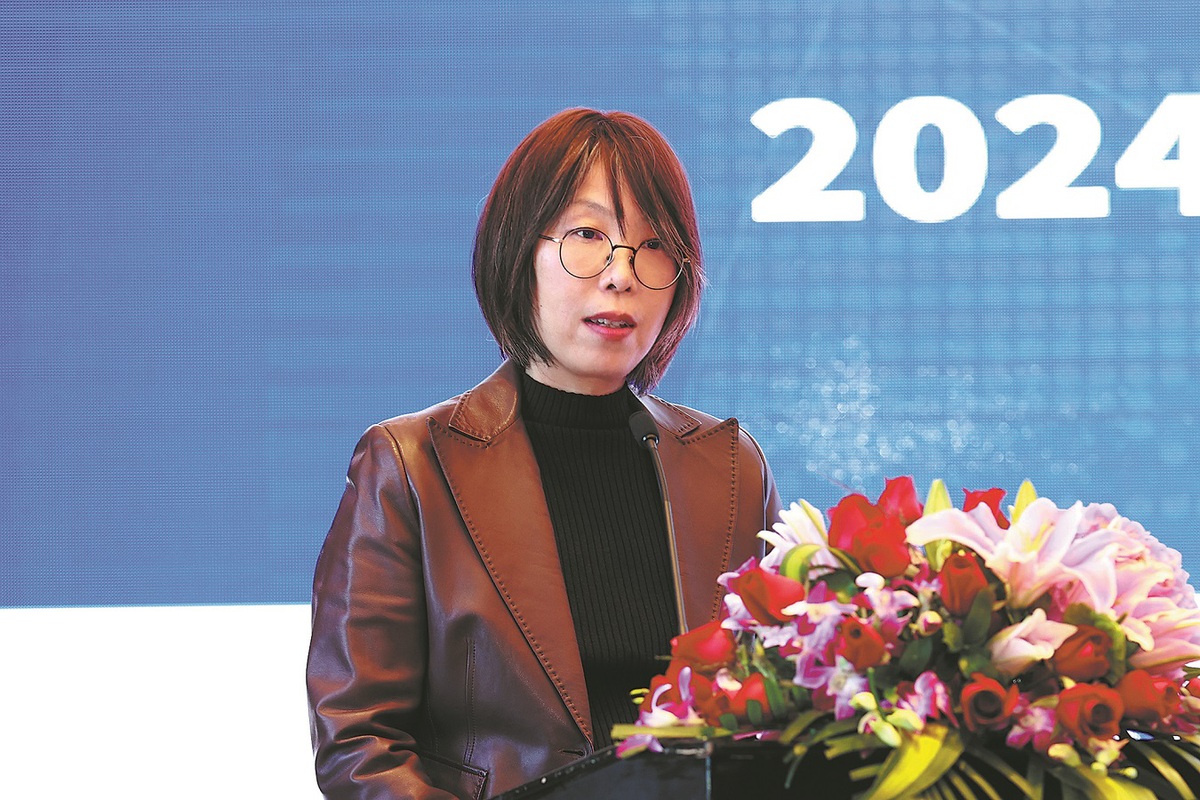Young UN trailblazers carving nation's path in world affairs
Number of Chinese working in organization more than doubles in past 15 years


New pathways
The pathway to a UN career for Chinese was quite different not long ago.
Li Wen, chief of mission in China for the International Organization for Migration, recalled that in the late 1990s, linguistic roles were the primary entry point for most Chinese staff.
"At that time, the dominant channel was through language, translating and editing Chinese documents," she said.
Li's connection with the UN dates back to her university days. In 1995, as a postgraduate student at the China Foreign Affairs University, she participated in China's first Model United Nations conference, representing Afghanistan in a session on women's issues. Though her understanding of the UN was nascent, it ignited a desire to be involved.
After graduation, Li joined the Foreign Ministry's Department of International Organizations and Conferences, experiencing life as a representative of the Chinese government at the UN. In 2014, she made history as the first employee seconded by the Chinese government to the Office of the President of the UN General Assembly.
"The president of the General Assembly often has limited funding, and the UN-provided staff may not be sufficient, so they seek personnel seconded from different national governments. Starting in 2014, the Chinese government decided to send staff to the UN General Assembly President's Office," she said.
"I remember arriving at the UN not knowing what was expected of me. Everything was learned on the job. I worked in New York until the end of 2016, and then had the opportunity to join the IOM. Because I enjoyed working in the UN system, I transitioned to IOM and became a formal UN staff member," Li said.
She recalled that in 2017, when she joined the IOM headquarters in Geneva, she was the only Chinese national working there. Now, more and more Chinese professionals are joining the UN across various fields.
Classroom for ambitions
This rising interest is also palpable on university campuses. Zhu Jiejin, deputy director of Fudan University's Center for the Study of the UN and International Organizations, has witnessed the surge firsthand.
He offers a popular course that brings professionals from international organizations into the classroom. When the course was launched in 2020, around 600 students applied for 200 spots. Last year, more than 1,500 students sought admission, forcing him to cap attendance at 300.
According to Zhu, graduates from his international organizations course have already joined the ranks of the UN.
"There was one student whose choice deeply moved me. A former student of mine now works at the United Nations Population Fund. Most of her work there involves humanitarian relief efforts, which are quite dangerous, as they often take place in conflict zones and war-torn areas. Without a spirit of sacrifice or a deep sense of compassion, it would be very difficult to carry out such work," said Zhu.
"For China, it's a positive development that more young Chinese have the will and opportunity to work in international organizations like the UN, as it better reflects China's commitment to peaceful development, cooperation and win-win collaboration," he said.
Liu Tiewa, dean of the Country and Area Studies Academy at Beijing Foreign Studies University, sees the trend as part of a larger evolution. "As China becomes more integrated into the global community, a growing number of young people are considering careers in international organizations as a key professional path," she said.
"The growing interest among Chinese youth in pursuing careers at the United Nations signals a shift in their professional aspirations and a stronger sense of global citizenship. Today's younger generation brings more specialized expertise and a broader international perspective. They also have a deeper and more personal understanding of China's development, its elevated global standing, and its expanding influence."
She also pointed to China's increased financial contributions to the UN, with China now the second-largest contributor to the regular budget. "This reflects China's willingness to take on greater international responsibilities and also objectively requires China to provide more professionals to international organizations," Liu said.
- China Coast Guard fleet patrol waters off Diaoyu Islands
- Remains of 30 Chinese martyrs in Korean War returned to homeland from ROK
- Autumn harvest in full swing across China
- Belt and Road summit galvanizes grit for shaping shared future
- Judges call for joint oversight of AI expansion
- New horned toad species discovered in East China




































